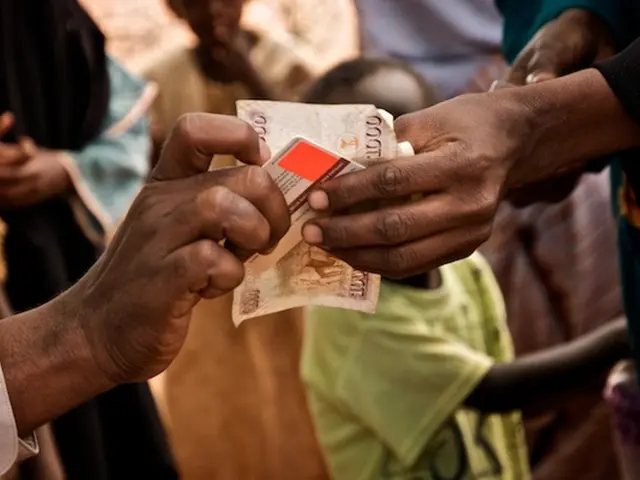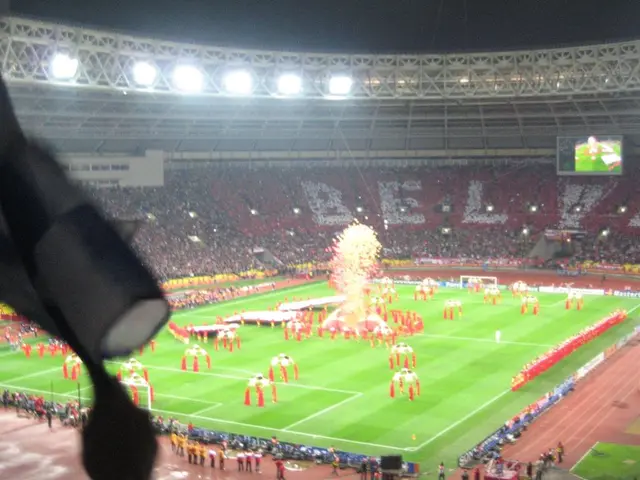Stewart addressed Sexton's commentary on the World Series of Poker.
The World Series of Poker (WSOP) has a distinctive approach to its international events, a tradition that has been in place for many years. One of the most notable aspects of this approach is the broadcast delay, which sets the final table apart from the rest of the series [2][5].
This delay, often referred to as the "broadcast delay" or "TV delay," allows organisers and broadcasters to create a more polished and suspenseful presentation. By editing footage, adding commentary, and sometimes using hole card coverage, they can produce a more compelling show with storylines, player backgrounds, expert analysis, and optimized pacing [1]. This approach aims to enhance the viewer experience, ensuring fairness, and maximising audience engagement.
However, this method also presents some challenges. The event is no longer a live spectacle for TV audiences, which can disconnect the broadcast from the authentic tension of live competition. Additionally, in the internet age, results often leak before the broadcast, potentially reducing suspense for viewers [3].
Despite these drawbacks, the WSOP continues to rely on this separation to deliver high-quality programming and maintain the competitive spirit of the game. For instance, the 2025 WSOP Main Event final table was played days after the rest of the event concluded to allow such production processes [5].
Notably, the WSOP final table is broadcast on the world's #1 sports channel, ESPN, showing every hand and airing live in primetime [4]. Moreover, players who reach the "November Nine" receive various benefits, such as Business Class flights and return expenses covered, and their 9th place money in July [3].
In the current social media and live reporting era, airing a documentary filmed months earlier might not be the best strategy for the WSOP. However, the traditional TV broadcast model still holds significance, as indicated by the high audience ratings and positive feedback [6]. The WSOP always values feedback and respects the desire to improve, as shown by its response to criticism from poker legend Mike Sexton [7].
The WSOP also caters to a variety of poker players, from professionals to recreational players who may not have large sums. It offers high buy-in events and mixed games for the serious poker enthusiast, while also providing tournaments for those who are new to the game [8].
Looking to the future, the WSOP plans to remain stakeholders for further investing in the game for decades to come [9]. It also aims to unite poker and the world, wanting the world to know about poker [10]. In a recent move, the WSOP has broken barriers by getting live poker on the Olympic channel Eurosport in Australia [11].
In conclusion, the WSOP's unique approach to broadcasting its international events balances the complex demands of live tournament play and televised entertainment. While it presents some challenges, it also offers numerous benefits, ensuring that the WSOP remains a global event that continues to promote poker under its brand for the future.
What modifications could be made to the WSOP's traditional TV broadcast model to cater to the digital age and maintain audience engagement? Could casino-and-gambling platforms, such as those offering casino-games and poker, stream live and unedited final tables of the WSOP events?





